May 16, 2025 | 05:23 GMT +7
May 16, 2025 | 05:23 GMT +7
Hotline: 0913.378.918
May 16, 2025 | 05:23 GMT +7
Hotline: 0913.378.918
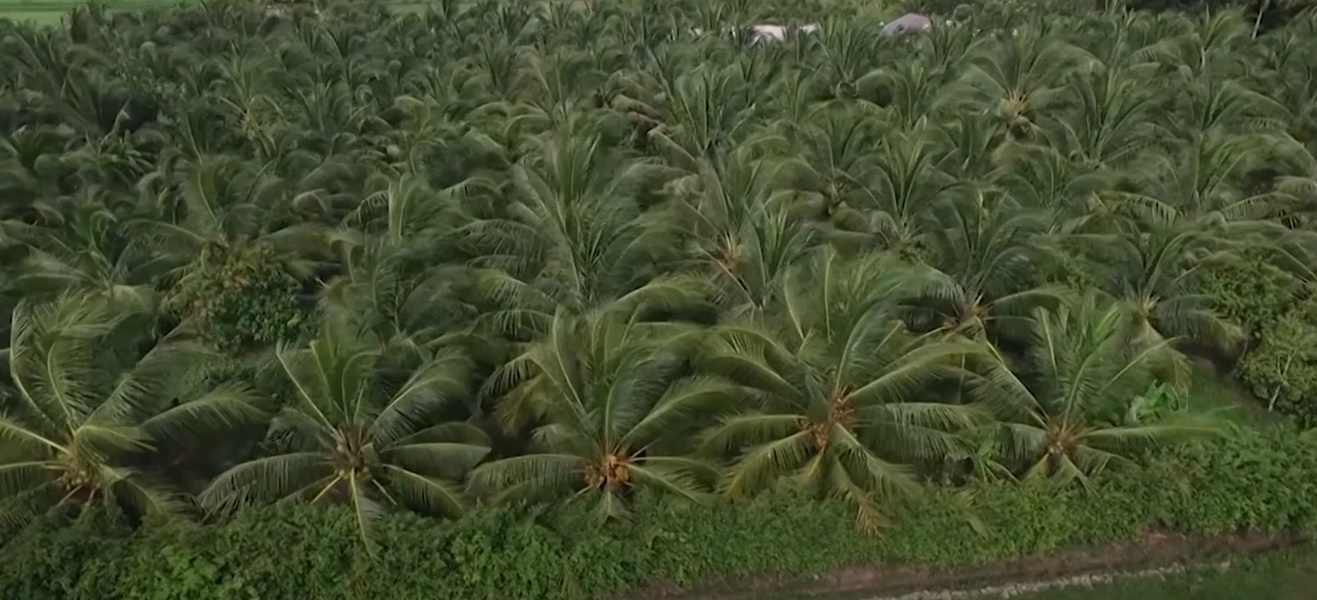
Up to now, Tra Vinh province has more than 1,000ha of macapuno growing area, mainly concentrated in Cau Ke district.
Macapuno (Philippines: makapuno) is a famous specialty of Tra Vinh province, most concentrated in Hoa Tan commune, Cau Ke district. Macapuno is a type of solid intestine, thick copra, and thick water with a different flavor from regular coconut varieties, which is both fatty and delicious. Last time, growing macapuno contributed to improving the income and living standards of coconut farmers.
Ranking second in terms of coconut area after Ben Tre province in the Mekong Delta, up to the present time, in 2022, Tra Vinh has a total coconut area of over 26,000 ha with an annual output of about 444 million fruits, of which the area of macapuno occupies about 722 ha. Up to now, this area has grown to more than 1,000 ha, concentrated mainly in Cau Ke district, accounting for about 90% of the province's macapuno growing area. Macapuno is grown today not only in Cau Ke district but also in many places in the Mekong Delta.

The economic efficiency of macapuno is many times higher than that of regular coconut, helping farmers have a stable life.
As recorded, Hoa Tan commune currently has about 380 ha of macapuno in the fruiting stage. The economic efficiency of macapuno is many times higher than that of regular coconut, helping many farmers in the commune have a stable life. "In this garden, I planted 100 roots, all of which are macapuno. Although the harvest volume is not large because one chamber can only get two, three, or four fruits, I still earn about VND 8–9 million/month from selling macapuno," shared Mr. Kim Tu, a macapuno farmer in Tan Hoa commune.
Macapuno has high economic value. The average selling price at the garden is from VND 80,000 to 120,000/fruit, sometimes up to more than VND 200,000/ fruit, which is 10–20 times higher than other types of coconut. In addition to being a fresh fruit, macapuno also serves many different uses in food technology, such as cream production, confectionery production, and the production of cosmetics and pharmaceutical products, because of its medical and nutritional values.
To be more specific, in terms of medicine, macapuno is a type of tree with high cooling properties, helping to purify the body, act as a laxative, reduce blood fat, and reduce oxidation. In terms of nutrition, macapuno copra is more porous than normal copra because normal copra is solid.

Mr. Tran Van Ut Tam, Deputy Director of the Tra Vinh Department of Science and Technology.
Macapuno is assessed by the farmers as being easy to grow and well able to withstand drought and salinity. However, the output is not really stable because no businesses agree to consume products, so farmers depend a lot on traders. Therefore, the requirement is to diversify products deeply processed from macapuno in order to improve the value of macapuno, meet the diverse needs of consumers, and develop linkages with businesses. The ultimate purpose is to create output for Tra Vinh macapuno, thereby providing stable long-term income for farmers.
According to Mr. Tran Van Ut Tam, Deputy Director of the Tra Vinh Department of Science and Technology, in recent years, the Department of Science and Technology has cooperated with the Research Institute for Oil and Oil Plants of Viet Nam to research and perfect a number of post-harvest processing and storage procedures for some products from macapuno. Specifically, in 2018, two parties implemented research on a product, namely macapuno milk powder. In 2019, they researched the processing procedures of products such as macapuno strings and macapuno cream. In 2020, two parties also implemented research, especially research on the glass extraction of galactomangan content from macapuno for the pharmaceutical and cosmetic industries.
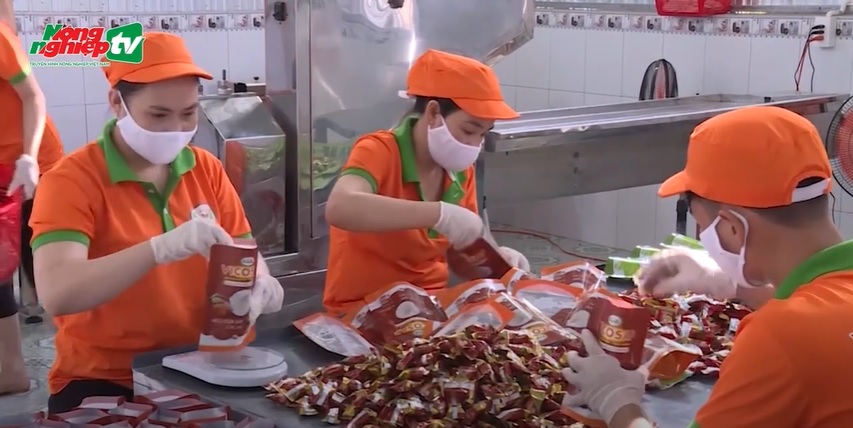
Cau Ke Macapuno Processing Co., Ltd (Vicosap) processes many products from macapuno, achieving 4-star OCOP products such as Bao Chau macapuno, macapuno candy, and macapuno strings.
Currently, Tra Vinh province is orienting farmers and cooperatives to maintain OCOP product development in order to create a trademark for local macapuno to develop more. At the same time, guide farmers to implement product traceability to participate in the export market. Thereby attracting businesses to associate with farmers and consume macapuno, creating stable and sustainable output for the province's macapuno.
Accompanying the journey of diversifying macapuno products, Mr. Tran Duy Linh, Director of Cau Ke Macapuno Processing Co. Ltd. (Vicosap) and a son of Cau Ke, established a company to purchase and process many products from macapuno, achieving 4-star OCOP products such as Bao Chau macapuno, macapuno candy, and macapuno strings. The aim is to realize his ambition to raise the specialty of his hometown to a new height. Currently, Mr. Duy Linh's products are widely introduced to domestic and foreign consumers.
"The cooperative has developed a plan on output linkage with Vicosap company of Cau Ke to create output for farmers in general; thereby, they have a long-term stable income, " said Mr. Nguyen Thanh Moi, Vice Chairman of Hoa Tan commune, Cau Ke district, Tra Vinh province.
Tra Vinh province currently has 21 products deeply processed from coconut out of the 184 province’s OCOP products, especially nine products processed from macapuno. Macapuno products have been listed on the e-commerce trading floor as well as sold to the domestic market and exported to Japan, the US, etc.
Translated by Huyen Vu Thu

(VAN) Use of high-quality broodstock and biotechnology is regarded as the most effective approach to ensuring sustainable and economically viable shrimp aquaculture ahead of climate change and the emergence of increasingly intricate disease patterns.

(VAN) Carbon farming is a form of agricultural practices that helps absorb more greenhouse gases than it emits, through smart management of soil, crops, and livestock.

(VAN) This is a key content of the Memorandum of Understanding recently signed between the Vietnam Fisheries Society and Kunihiro Inc of Japan.

(VAN) To achieve the goal, local authorities and businesses in Kon Tum province have fully prepared the necessary conditions for the new Ngoc Linh ginseng planting season.
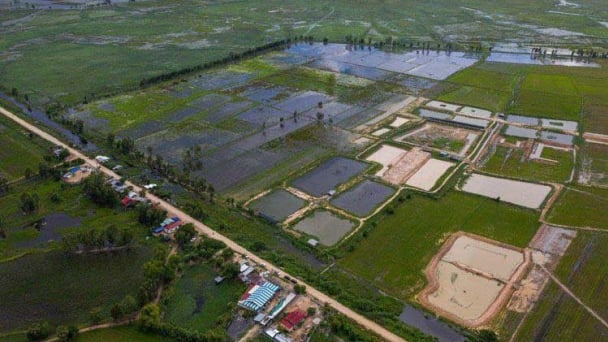
(VAN) Jiangsu province is gearing up to host training programs in Phnom Penh, the capital of Cambodia, this year to establish the Fish and Rice Corridor.
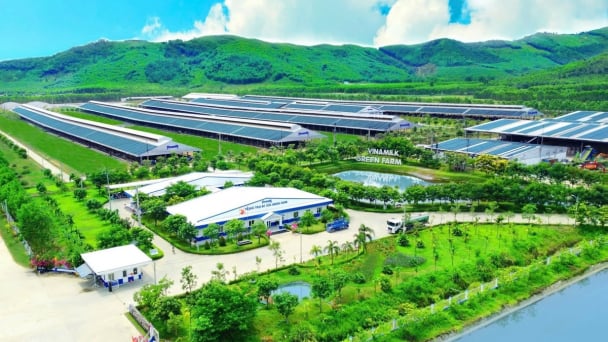
(VAN) Le Hoang Minh, representing Vinamilk, shared the company's experience in energy saving and green energy transition for production at a workshop held during the P4G Summit.
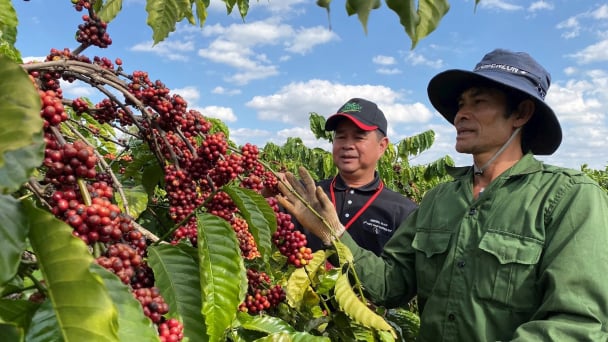
(VAN) Businesses emphasize fairness and equality when integrating social factors into their sustainable development strategies.